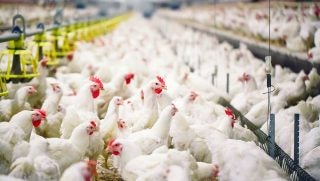In an attempt to manage Wyoming’s wild horse population, a group of Wyoming legislators have introduced a joint resolution asking the U.S. Congress to allow the slaughter of wild horses to mitigate the destruction of overstocked rangelands.
“Policy tools must be implemented to authorize equine domestic slaughter, to allow horse and burro meat inspection and sale, and to facilitate the humane transport of wild horses and burros both domestically and to other countries or sovereigns for slaughter,” reads the resolution.
While the Wild Free-Roaming Horses and Burros Act of 1971 protects wild horses and burros, placing them under the management of the Bureau of Land Management and the U.S. Forest Service, legislators argue that wild horse herds infringe upon natural resources used by wildlife and livestock, while damaging the land for public use.
»Related: Overpopulated wild horses cause concern in western rangeland
House Joint Resolution 3 advocates for the allowance of “equine slaughter and processing for shipment to accommodating markets inside or outside the United States,” while pointing out alleged shortfalls to their management.
Legislators in the resolution say that wild horse herds, which can double every four to five years, are providing a population unmanageable by federal agencies even with adoptions and fertility measures. According to the resolution, the BLM has spent nearly $78 million on off-range holding expenditures just last year.
But, the history of horse meat and slaughter in the United States has been a divisive topic for decades. “The United States Congress has effectively banned horse slaughter in the United States for human consumption since 2007 by denying funding for the inspection of equine slaughter facilities throughout the food production process,” the resolution states.
According to multiple Wyoming news sources, Jim Magagna, executive vice president of the Wyoming Stock Growers’ Association, said he would support HJR 3.
“It’s a good statement,” Magagna said. “It’s a way for the state to express some serious concerns with the fact that the current practices are not keeping numbers within management goals.”


